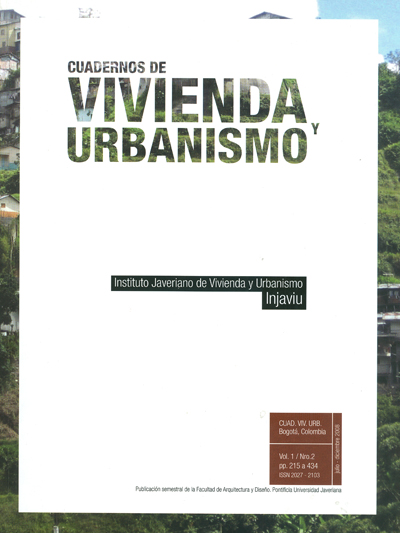Abstract
This article focuses on precarious settlements along the border of the twin cities in the Amazon border. This is a case study about the cities of Leticia, Colombia and Tabatinga, Brazil. From this study, it is possible to illustrate that these two cities are being informally integrated in the area, and that the settlements studied are transforming the border: the concept of limit is centered on the construction, by part of the inhabitants, of a social space of the territory. From this perspective, the article, first, realizes a comparative study that searches for symmetric and asymmetric aspects analyzing the socioeconomic and physical characteristics of the inhabitants of these settlements. Second, it develops a review of the urban legal framework and Colombian and Brazilian border policies applicable to the case: twin cities. The objective is to formulate an appropriate short and long term international border policy, which can be developed by the local governments of the twin cities Leticia and Tabatinga. The aim of such policy is to manage precarious settlements along the border as a common and shared problem. The research methodology utilized can also be an appropriate research procedure for future urban studies in the twin cities of Leticia and Tabatinga.
This journal is registered under a Creative Commons Attribution 4.0 International Public License. Thus, this work may be reproduced, distributed, and publicly shared in digital format, as long as the names of the authors and Pontificia Universidad Javeriana are acknowledged. Others are allowed to quote, adapt, transform, auto-archive, republish, and create based on this material, for any purpose (even commercial ones), provided the authorship is duly acknowledged, a link to the original work is provided, and it is specified if changes have been made. Pontificia Universidad Javeriana does not hold the rights of published works and the authors are solely responsible for the contents of their works; they keep the moral, intellectual, privacy, and publicity rights.
Approving the intervention of the work (review, copy-editing, translation, layout) and the following outreach, are granted through an use license and not through an assignment of rights. This means the journal and Pontificia Universidad Javeriana cannot be held responsible for any ethical malpractice by the authors. As a consequence of the protection granted by the use license, the journal is not required to publish recantations or modify information already published, unless the errata stems from the editorial management process. Publishing contents in this journal does not generate royalties for contributors.


